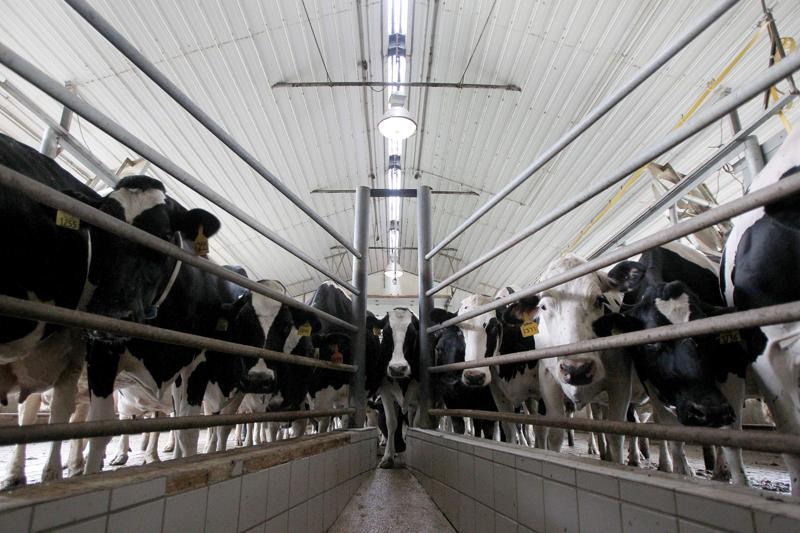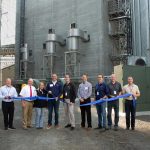
NE Iowa manure facility faulted as danger to water quality.
A Winneshiek County dairy farm has abandoned its plans to increase the size of its herd as it builds a new facility that will capture methane from the herd’s manure.
That facility — an anaerobic digester that is proposed to be built near Ridgeway by Novilla RNG — would use manure from two nearby dairy farms.
It was the subject of a tense county meeting in which the Winneshiek Board of Supervisors narrowly voted last month to rezone the land it will occupy to industrial, so the facility can process the gas and inject it into an existing natural gas pipeline.
Amid the outcry, Full Bohr Dairy decided not to pursue an increase of its herd, said Mark Hill, a co-owner of Michigan-based Novilla RNG. The dairy has about 1,600 cattle in confinement and open feedlot.
“This is a family farm that’s not used to being dragged through here,” Hill said.
An operator of Full Bohr did not immediately respond to a request for comment.
Brian Jergenson, a senior environmental specialist for the Iowa Department of Natural Resources who monitors livestock operations in the area, also said Full Bohr has indicated it will not immediately increase its herd size.
Novilla still plans to pursue the digester project, Hill said.
The company received a conditional use permit from the county Board of Adjustment last week. Its application for a construction permit with the DNR is pending and has been delayed because the initial request contained incorrect information about the current herd, Jergenson said.
Manure management is a key challenge for large livestock operations, and the Novilla digester would hold up to 5 million gallons in two vessels. The facility would capture methane and other gases that are emitted by microbes that consume the manure.
“It’s one of those projects that provides another income stream for farmers but also cleans up the water and cleans up the air and reduces greenhouse gases,” Hill said.
But the projects have risks as well. The manure must be transported to the digester, and leftover material from the process requires disposal, often by spreading it on fields.
A digester in northwest Iowa leaked about 376,000 gallons of manure into the ground in 2022. That potential is a greater concern in Winneshiek because of its porous karst topography, which increases the risk of groundwater contamination.
The Driftless group recently filed a lawsuit in state district court that seeks to nullify the county supervisors’ vote to rezone the land for the digester. It’s unclear when the litigation will conclude.
The group’s president, Chris Jones, said he is pleased Full Bohr isn’t expanding the herd size but worries the plan might simply be delayed.
“It’s hard to imagine they’re going to put that sort of infrastructure in and not operate at full capacity at some point in the future,” he said.
You can now read the most important #news on #eDairyNews #Whatsapp channels!!!
🇺🇸 eDairy News INGLÊS: https://whatsapp.com/channel/0029VaKsjzGDTkJyIN6hcP1K
























